The reliable sharing and use of data is at the heart of the European Union’s data economy strategy. Effective data sharing between organisations can enable the development of better products and services and increase work productivity.
But data sharing requires trust and fair rules. Sitra’s recent working paper “Towards a Holistic EU Data Governance – Taking stock of the progress of the EU Data Strategy and proposals” stresses that only easy-to-apply regulation that supports innovation will enable Europe to seize the business opportunities offered by the data economy.
Complex regulation requires new ways of implementation
The European Commission is in the process of implementing a new set of regulations on data sharing and data governance that will involve new institutions at EU level and new responsibilities for member states.
The implementation of the new legislation in the member states is not straightforward, as it does not replace existing regulation, but comes alongside it. The overlap between the old and the new legislation may cause confusion for both public authorities and data management experts.
Sitra’s new working paper takes a holistic view of data regulation and recommends actions and new tools to facilitate its application at different levels – EU, national and data space. The working paper is based on interviews with dozens of experts who work in data-sharing roles in different countries.
The interpretation of rules must not fall on the shoulders of business
The working paper examines the impact of data regulation in the EU, nationally and at the level of data-sharing. A
data space
Data space
A set of mutually agreed principles and rules for sharing and exchanging data within or between different sectors.
Open term page
Data space
is a decentralised system that enables secure and reliable data transfers between participants.
In practical terms, clarifying the application of data regulation is about ensuring that companies and operators interested in sharing data do not have to go to undue lengths to understand the regulation. Ideally, compliance with data-sharing rules should be easy and even automated.
Who oversees data regulation at different levels?
At EU level, a number of new and existing bodies will be involved in implementing the new data regulation, providing guidance to implementers and facilitating cooperation between member state authorities. One example is the European Data Innovation Board (EDIB), whose tasks include producing operational recommendations for European data spaces.
In the Member States, EU data law will be overseen by existing authorities such as competition, telecoms and data protection authorities, or by new bodies set up for this purpose.
Data sharing between different parties also requires industry-specific rules, architectures and standards to complement the legislation. These rules and agreements, which are not part of the legislation itself, are called “
soft infrastructure
Soft infrastructure
An area of digital infrastructure, including institutions, services, standardised definitions and contracts.
Open term page
Soft infrastructure
“.
The interpretation of regulation is further complicated when regulation at all three levels – EU bodies, member states and data spaces – has to be considered simultaneously.
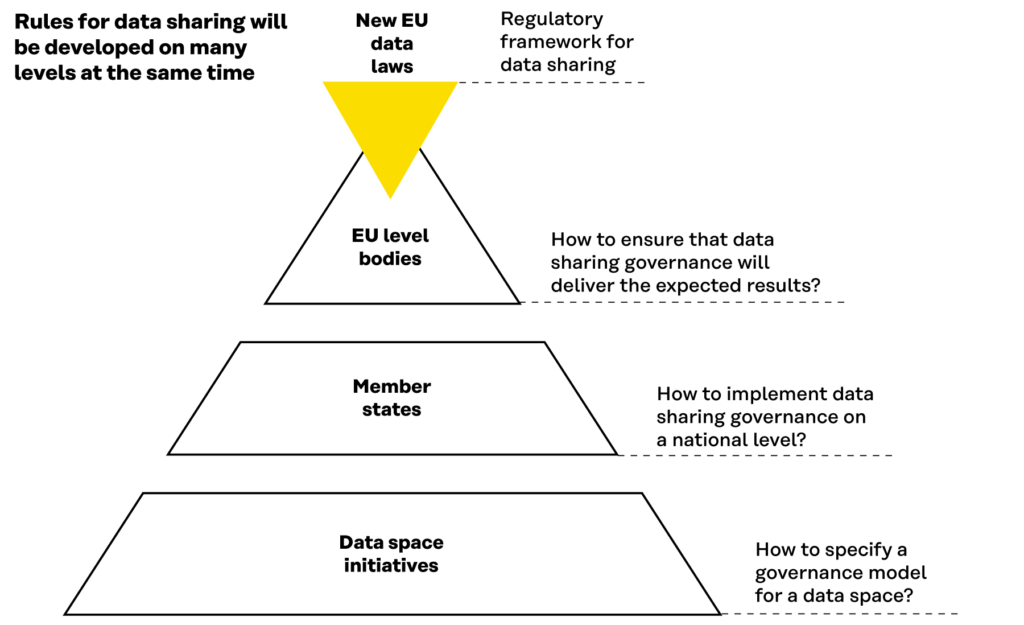
Working paper recommends new data sharing “role book” for regulatory application
Interviews conducted for the working paper revealed that many stakeholders at European and national level, as well as data space developers across industries, are struggling with how to interpret the roles and responsibilities of all the different institutions involved in data regulation. The working paper provides recommendations for the application of regulation at all levels mentioned above.
A key recommendation is for a new holistic approach that would integrate data-sharing rulebooks across different industries into a new tool, the role book.
This would complement and bring together existing data-sharing rulebooks built in different networks and facilitate the discovery and application of information.
The role book would complement and bring together existing rulebooks and facilitate the discovery and application of information.
In practice, the role book would be an open, transparent and up-to-date register of the roles and institutions involved in or influencing data sharing at different levels.
Sitra has been a major contributor to the work on the Fair Data Economy Rulebook, which has been used as a guide and basis for industry-specific rulebooks across Europe.
The working paper suggests how the role model could be developed at EU level, but the model has not yet been tested in practice.
Read the report
The working paper is published in English: “Towards a Holistic EU Data Governance – Taking stock of the progress of the EU Data Strategy and proposals“.
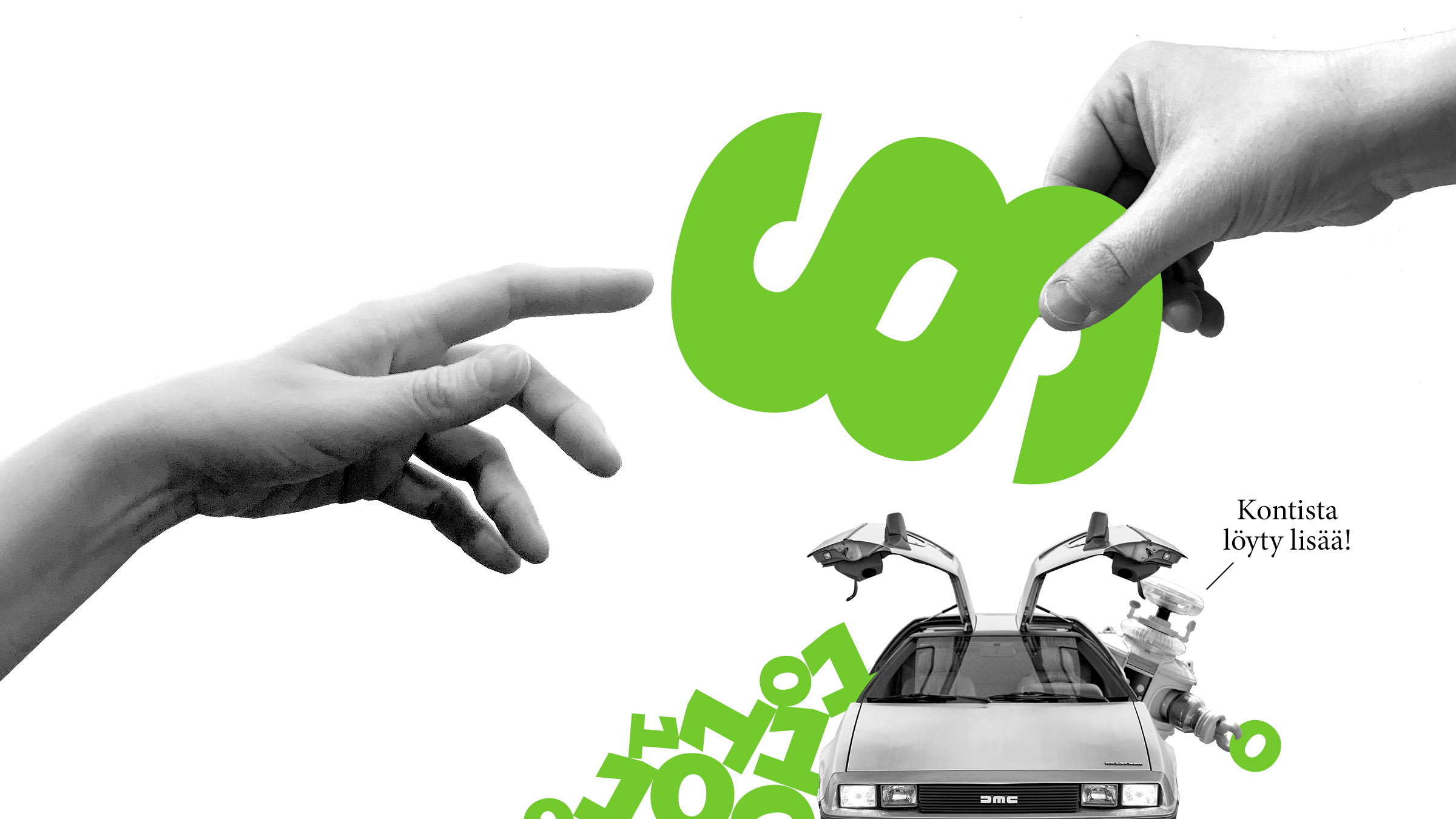













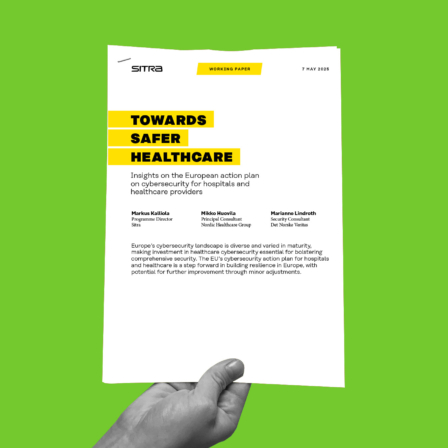

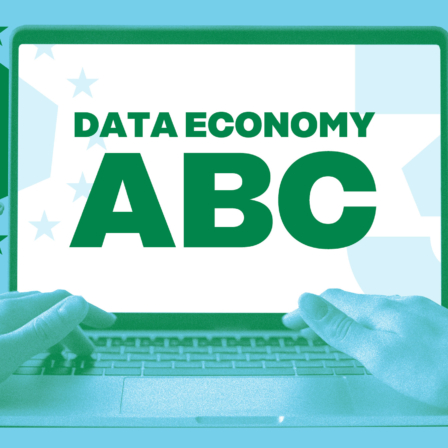

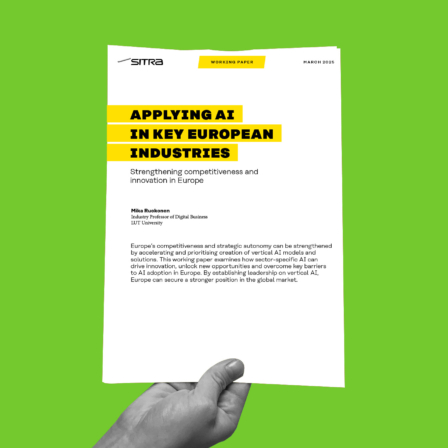
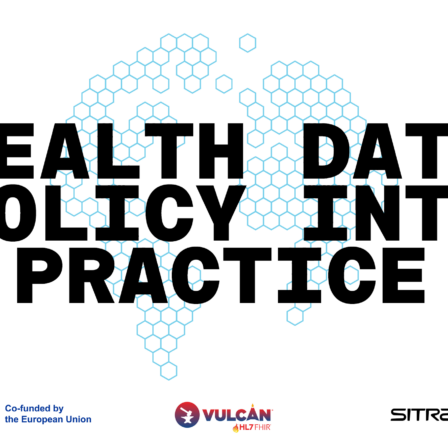

Recommended
Have some more.